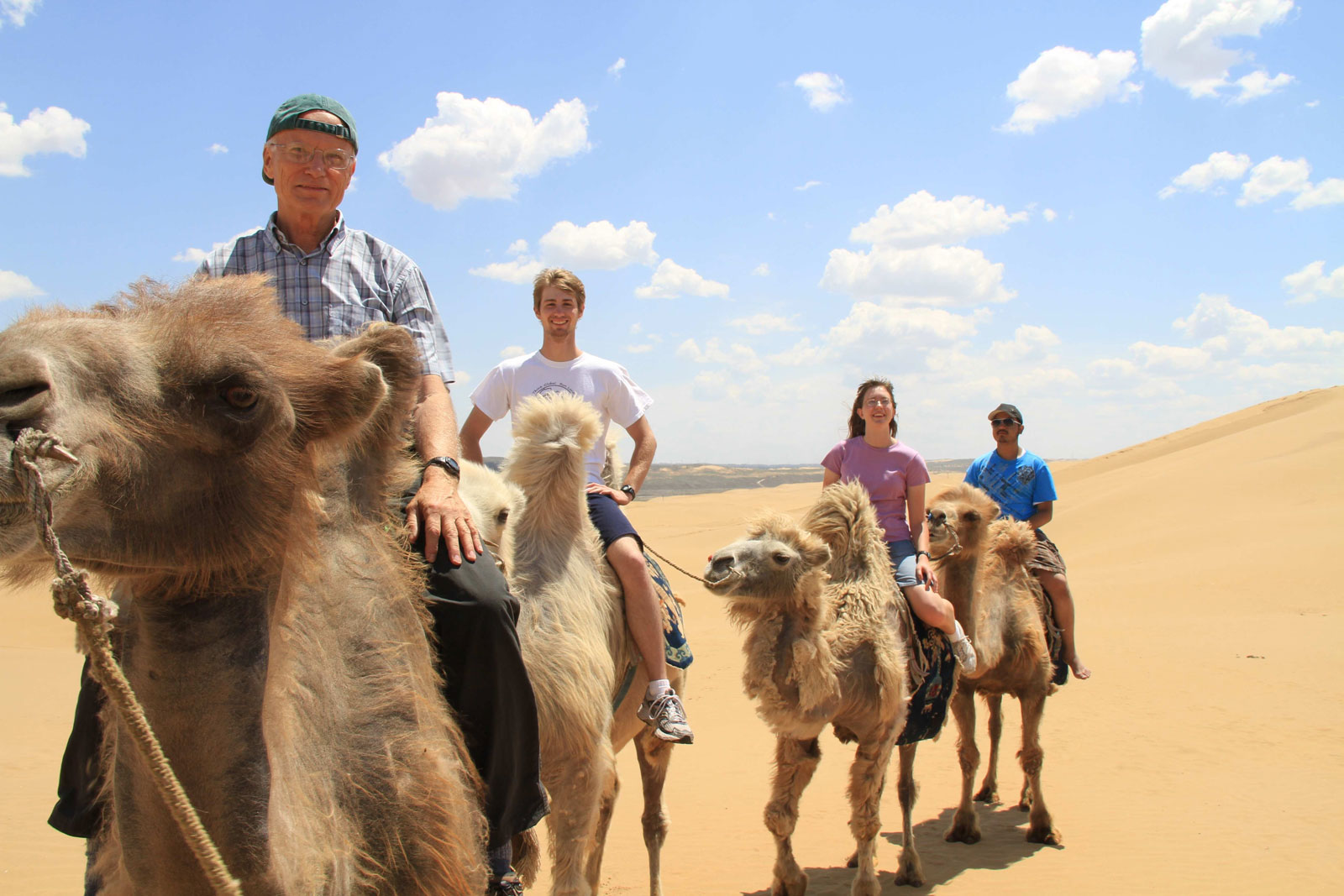
Stargazing, Showing Students A Diverse World
Richard Schultz’s international connections are always with him – all he needs to do is look up.
“It is exciting to look at the stars at night and know that thousands of miles away there are friends who live on the steep hillsides along the Salween River in China, or in grass and mud huts in central Uganda, or in the new capital of Kazakhstan, or the Himalayan Mountains of Nepal, who can see the same stars,” he says.
Schultz (’65 forestry, ’68 MS and ’70 PhD forest biology), a University Professor of natural resource ecology and management, wants to give his students the same type of feeling.
“My motivation is student-centered, exposing undergraduates to the diversity of peoples, places, lifestyles and living standards on our planet,” he says. “At the same time, I want them to appreciate the similarity of people around the world.”
Schultz began working internationally in the mid-1990s by hosting visiting professors from South Korea and Venezuela.
While he continues to host visiting professors and students, his main focus now is helping develop and conduct study abroad trips for students in Iowa State’s College of Agriculture and Life Sciences.
“Dick has been an incredible group leader,” says Shelley Taylor, director of the college’s study abroad programs. “He develops programs in non-traditional study abroad locations with an eye for what will be interesting and relevant to students. He strives to provide them an academic adventure that also is fun.”
Schultz has led three student groups to Korea, guided groups to China each of the last six years and is one of three faculty members who have led an experiential program for students to Uganda twice. In 2011, he will lead student groups to Turkey and Greece, plus China and Uganda.
“I get tremendous satisfaction when I watch the transformation of students as they begin to sense the awe and wonder of other places and cultures,” Schultz says. “These are life-changing experiences.”
A testament to his teaching ability came in 2008, when Schultz was one of six regional recipients of the USDA Food and Agriculture Sciences Excellence in Teaching Award.
Schultz teaches courses in ecology, soils, watershed management, plus a new course in resource systems of developing nations. Students in all his courses develop class presentations on global natural resource issues.
His involvement in international programs has made him a better teacher, Schultz says. “I believe international work gives me a better perspective of what goes on in the world, and provides me with many examples I can share with students.”
When he’s not teaching and traveling, Schultz is active in outreach activities that support his research program, which deals with the placement, design and installation of conservation buffers in agricultural landscapes.



